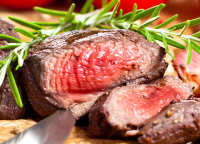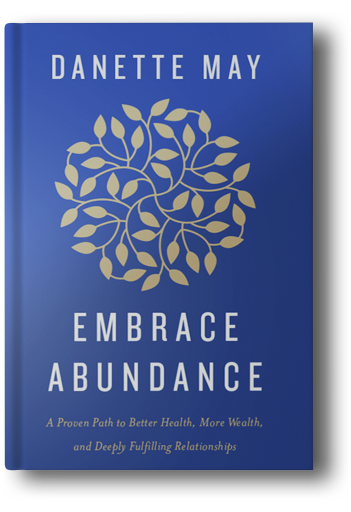If you're over 40 then you've likely started to notice a lot of changes in your body.
You're probably more in tune with keeping a healthy lifestyle than you were 20 years ago, but did you know that you're more at risk for being deficient in certain nutrients now?
Yes, a menu that's rich in fruits, vegetables, and proteins gives you most of the nutrients you need. Yet, it's possible that you may still fall short of some nutrients.
Eating habits, poor soil quality, and low nutrient foods are just some of the reasons for nutrient deficiencies.
Stress, work and lifestyle habits can also increase the risk of deficiencies.
You may even notice more food cravings as you get older. That's because a lot of food cravings are linked to specific nutrient deficiencies.
5 Nutrients You're Probably Low on After Age 40
Catch these symptoms early to avoid nutrient deficiencies.
#1. Vitamin D
While vitamin D deficiency does not show as a food craving; there are telltale signs. Sluggishness, foggy brain, muscle aches and pain in the jawline or knees can mean a low Vitamin D level.
What helps?
Sunlight exposure (on bare skin) is the best way to boost D-levels.
Dietary sources include oily fish like wild salmon, mackerel, sardines; mushrooms and egg yolks.
Fortified foods and dairy products also supply vitamin D.
#2. Magnesium
Research links chocolate cravings to low magnesium levels. This is a classic example of food cravings and deficiency.
Magnesium is arguably the most important nutrient in your body. You need magnesium for energy release, blood sugar management and many more.
Deficiency shows in the form of fatigue, fluctuating blood sugar levels, and migraines.
What helps?
Include dark greens (spinach, Swiss chard, turnip greens, beet greens, mustard greens, and kale). Dark chocolate, legumes, pumpkin seeds, cashews and sunflower seeds are rich in magnesium too.
#3. Omega-3 fat
If you follow the Standard American Diet (SAD), omega-3 deficiency is imminent.
Too many omega-6 fats and too few omega-3 dictate higher risk of  diseases.
diseases.
Dry, flaky skin, “chicken skin” on backs of arms, dry hair, soft, brittle nails are typical signs.
Menstrual cramps, poor focus, and fatigue are also common deficiency signs.
What helps?
Deep caught salmon, sardines, krill oil, walnuts, are all rich sources. Other good sources include grass-fed meat and free-range organic eggs.
#4. Fiber
Fiber from fruits, vegetables, nuts, and seeds help to lower the risk of many diseases.
The recommended daily intake of fiber is 25 grams for women and 38 grams for men.
TweetMost Americans consume less than half of the recommended amount.
Deficiency is notable in the form of constipation, dry hard stools, irregular bowel movements. Other signs include fluctuating blood sugar levels and weight gain.
Problems like irritable bowel syndrome and hemorrhoids are also due to low fiber intake.
What helps?
Include a variety of fruits, vegetables, legumes, nuts, and seeds.
#5. Choline
Choline is crucial for brain development. It's a B vitamin that is necessary for cell health, muscle control, and memory.
About 90% of Americans may be low in choline.
Symptoms of deficiency include brain fog, lethargy and memory problems.
What helps?
Although your body can make small amounts of choline, you need it from your diet.  Organic pastured eggs and grass-fed meat are the best sources of choline.
Organic pastured eggs and grass-fed meat are the best sources of choline.
Other good sources are beef liver, wild-caught salmon, and raw milk.
Vegetarian sources include Brussels sprouts, broccoli, and uncooked quinoa.
Vegans and vegetarians are at a particular risk of deficiency.
The 5 deficiencies above are the most neglected. Keep in mind; it's possible to be deficient in other nutrients like calcium, Vitamin B6, and B12 too.
It depends on your diet and lifestyle habits.
Also, these deficiencies can occur to anyone and are not just specific to the forty plus age. It's just that once you hit the forties, these nutrient gaps are more pronounced.
Be sure to eat fresh, unprocessed foods from both plant and animal sources to avoid the risk of nutrient deficiencies.
Yours in health and happiness,
Danette
P.S. I encourage you to share this with your friends who are over age 40 and I welcome your comments below. Have you noticed any of the symptoms of these nutrient deficiencies?






